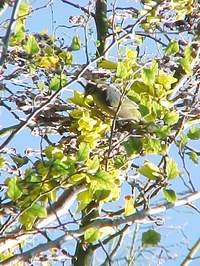| |
Medicinal and Culinary Herbs > Introduction
 Herbs are a gift from nature and
often included in our diet, used as medicine and more often mimicked by
scientists to make many of our modern drugs. The definition of a herb is broad
and can almost include any plant. Herbs are often foods and food additives to
give colour and flavour and they
include a wide range of leaves, bark, berries, roots, gums, seeds, stems and
flowers. They have been used for thousands of years to help maintain and restore
good health. Herbs are a gift from nature and
often included in our diet, used as medicine and more often mimicked by
scientists to make many of our modern drugs. The definition of a herb is broad
and can almost include any plant. Herbs are often foods and food additives to
give colour and flavour and they
include a wide range of leaves, bark, berries, roots, gums, seeds, stems and
flowers. They have been used for thousands of years to help maintain and restore
good health.
Today they are included in preparations for the prevention and
treatment of many health problems. Modern drug companies isolate the chemicals
and active ingredients naturally found in herbs, and then synthesize them to
make modern medicines. While many of these synthesized compounds relieve
some symptoms of illness, we consider that the natural balance of
compounds found in natural herbs is more healthy for the human metabolism with
fewer toxic side effects.
In these
pages we describe a variety of herbs and their uses. Remember this information does not
constitute medicinal advice. Always consult your health professional with health
problems.
Use the index to your right to discover the properties of various
herbs and how they are used and grown.
In our experience with herbal preparations, most are effective for
about 85% of users, less effective for 10% and marginally effective for the
remaining 5%. Modern medicine disputes the effectiveness of all herbal medicines
although a great many modern medicines are plant extracts or synthetic copies of
plant or mineral extracts.
Dietary Supplements in America
 Dietary supplements were defined in a law passed by Congress in
1994. A dietary supplement must meet all of the following conditions: Dietary supplements were defined in a law passed by Congress in
1994. A dietary supplement must meet all of the following conditions:
- It is a product (other than tobacco) intended to
supplement the diet, which contains one or more of the
following: vitamins; minerals; herbs or other
botanicals; amino acids; or any combination of the
above ingredients.
- It is intended to be taken in tablet, capsule,
powder, softgel, gelcap, or liquid form.
- It is not represented for use as a conventional
food or as a sole item of a meal or the diet.
- It is labelled as being a dietary supplement.
Other important information about dietary
supplements:
- They are regulated as foods, not drugs, so there
could be quality issues in the manufacturing process.
- Supplements can interact with prescribed or
over-the-counter medicines, and other supplements.
- "Natural" does not necessarily mean "safe" or
"effective."
- Consult your health care provider before starting
a supplement, especially if you are pregnant or
nursing, or considering giving a supplement to a
child.
Disclaimer:
All Information is provided for educational purposes only and
not intended to be used for therapeutic purposes, neither is it
intended to diagnose, prevent, treat or cure any disease. Please
consult a health care professional for diagnosis and treatment of
medical conditions. |
|
Index
Quick Reference
Alfalfa
Aloe Vera
Arnica
Asafoetida
Betel Leaves
Bishop’s Weed
Blessed Thistle
Burcock
Cascara Sagrada
Cardamom
Chamomile
Chaparral
Chicory
Cinnamon
Comfrey
Coriander
Curry Leaves
Dandelion
Damiana
Echinacea
Euphrasia
Fenugreek
Garlic
Ayurvedic Garlic
Ginger
Aurvedic Ginger
Ginko Biloba
Ginseng
Gotu Kola
Guarana
Henna
Holy Basil
Hoodia Gordonii
Horny Goat Weed
Hyssop
Isapghula
Kalonji
Kava
Lavender
Liquorice
Mullien
Sage
Sandalwood
Sarsaparilla
St Johns Wort
Tee Tree
Thyme
Tribulus
Turmeric
|
|